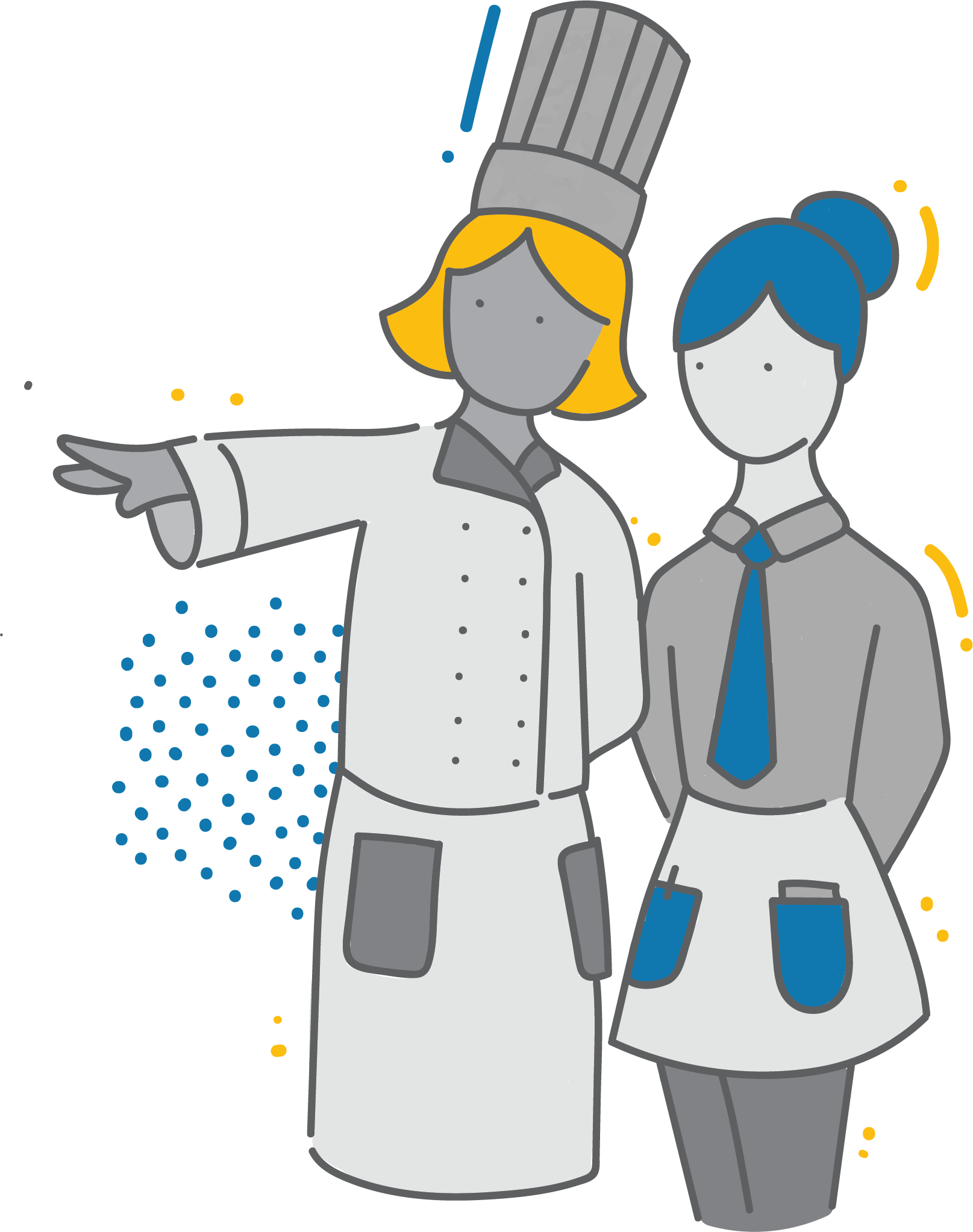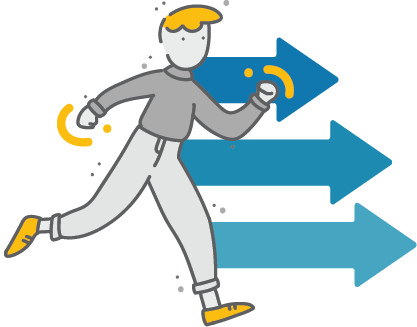Returning to Work
Manager, HR, Union, Long Term Disability
Updated Aug 1, 2019
Swipe right to go to the next slide
When you are planning a return to work (or trying to stay at work) after a concussion, there are several resources you may want to access for support.
Not all of these resources will be available in every job, but hopefully at least one will be available to you!

Your manager or supervisor is an important source of support. They know your job well and they have the power to make the changes needed to support you.
Your manager will ask you about your needs and help try to find solutions. They may ask your permission to talk to your family doctor or other healthcare providers to better understand your needs. Your manager is only entitled to know your medical limitations and restrictions related to work; your doctor will not share other health information with your employer.
Most medium and large companies have a Human Resources (HR) department. HR provides worker-related services (e.g. recruiting, training and paying employees).
HR is also responsible for helping employees with job accommodations to return to work or stay at work after an injury. If your employer has an HR department, they will be your first point of contact. HR will then work with you and your manager to put necessary supports in place.
If you are a member of a union, your union representatives can also be a source of support.
Your union representatives can help you understand the details of your collective agreement and what your rights are. They can give you and your employer advice on applying job accommodations in ways that limit the impact on other union members.
If you are on Long Term Disability (LTD) benefits due to your injury, your Case Manager can help. They can talk with your employer about job accommodations you need to get back to work.
In most cases a family physician or walk in clinic doctor can create an appropriate GRTW with you. Sometimes additional professional supports may be helpful for navigating the process of a successful return to work.
For example, an Occupational Therapist (OT) specializes in helping clients increase functioning to engage in all daily activities, including work. An OT can help you plan and implement self-management strategies to maximize your abilities to return to work successfully.
These services may sometimes be covered by third party funding (e.g. ICBC, WorkSafeBC, Long Term Disability insurer, etc.).
A Vocational Rehabilitation Counsellor (VRC) can help analyze your job duties, identify necessary job accommodations, and work with you and your family doctor to develop a Gradual Return to Work plan. A VRC can assist you in navigating the process of returning to work successfully.
These services may sometimes be covered by third party funding (e.g. ICBC, WorkSafeBC, Long Term Disability insurer, etc.).
Make a list of the supports that are available to help you with your return to work.
Can you think of other resources that you could add? For example, maybe you have a trusted coworker who has been through the return-to-work process before. Or maybe you have a family member who works in HR who can give you informal advice.

Click the button above to toggle between light mode and dark mode. This toggle can also be found in the menu.
Hold
and tap
to zoom in.
Hold
and tap
to zoom out.
Hold
and tap
to zoom in.
Hold
and tap
to zoom out.
On most mobile devices, you can spread to zoom.
Increase your text size in your device settings.
Remember to take regular breaks while exploring MyGuide: Concussion.
Vancouver Coastal Health’s MyGuide Concussion Team would love to hear your feedback! It matters to us and helps to improve the experience for future users. Your responses will be kept anonymous and your privacy is a top priority. To complete a 15-20 minute online survey or request a telephone survey, please click the link below.